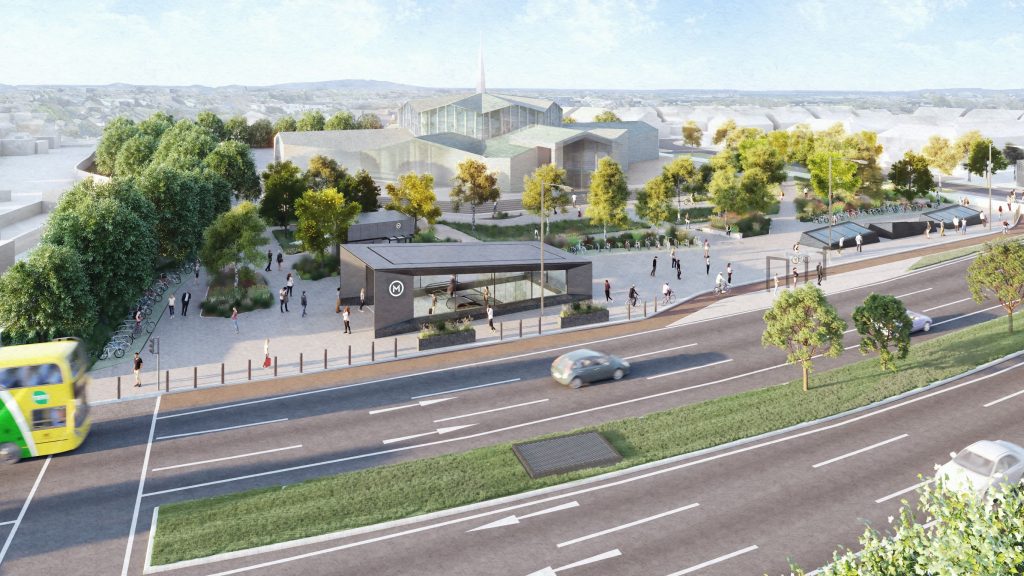
Transport Infrastructure Ireland (TII) submitted the planning application (Railway Order) for Dublin MetroLink project, a key process for the development of the new transit infrastructure.
With the submission for design work, “we have met our commitment with the submission of a planning application for the route. Securing planning approval is vital for MetroLink and I am keen to see construction on the project start as soon as possible,” the Transport Minister Eamon Ryan said.
Depending on the outcome of planning and procurement processes, the construction is expected to start in 2025 with passenger transport operation to begin in 2030.
The first phase of the project includes the construction of a 19 km metro line served by 16 stations between the Swords area and Charlemont in the south Dublin City Centre with the largest length being constructed underground. The new metro line will provide connectivity with the airport, the heavy rail system through two stations and enhanced connectivity to 2 major inter-city train stations, and to the Luas light rail network.
Dublin MetroLink is being designed with full accessibility and active travel modes such as walking and cycling at its core.
The system will be capable of carrying up to 20,000 passengers per direction per hour in each direction. For comparison, current Luas Green Line services can carry approximately 9,000 passengers per direction per hour. 20 trains operating per hour each way will provide services with a frequency of 90 seconds.
The new transit network will be a fully automated system offering safe and reliable transport to 100 million passengers per annum by 2060. MetroLink trains and stations will have accessible and safe designs to improve mobility for all passengers.
EUR 12 billion was the highest estimation cost of the project which is expected to add EUR 13.7 billion benefits to the economy over six decades. According to the Ministry of Transport, EUR 9.5 billion would be the final and credible estimation cost of the project for which in July it has secured funding under the 2023 budget. Three-quarters of the cost during the construction phase will be paid for by the exchequer and one quarter financed by a Public Private Partnership (PPP).
The project is part of Ireland’s development strategy and is a priority initiative under the 2035 transport strategy in the Greater Dublin Area.
Share on:



